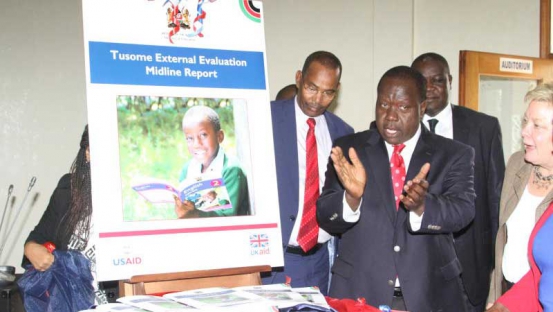×
The Standard e-Paper
Join Thousands Daily

The multi-billion-shilling textbook business is facing collapse after the Government revealed only one book per subject will be approved for use.
Education CS Fred Matiang'i said some subjects have up to six textbooks from different authors and cited collusion between publishers, books sellers and heads of schools that leads to loss of public funds.